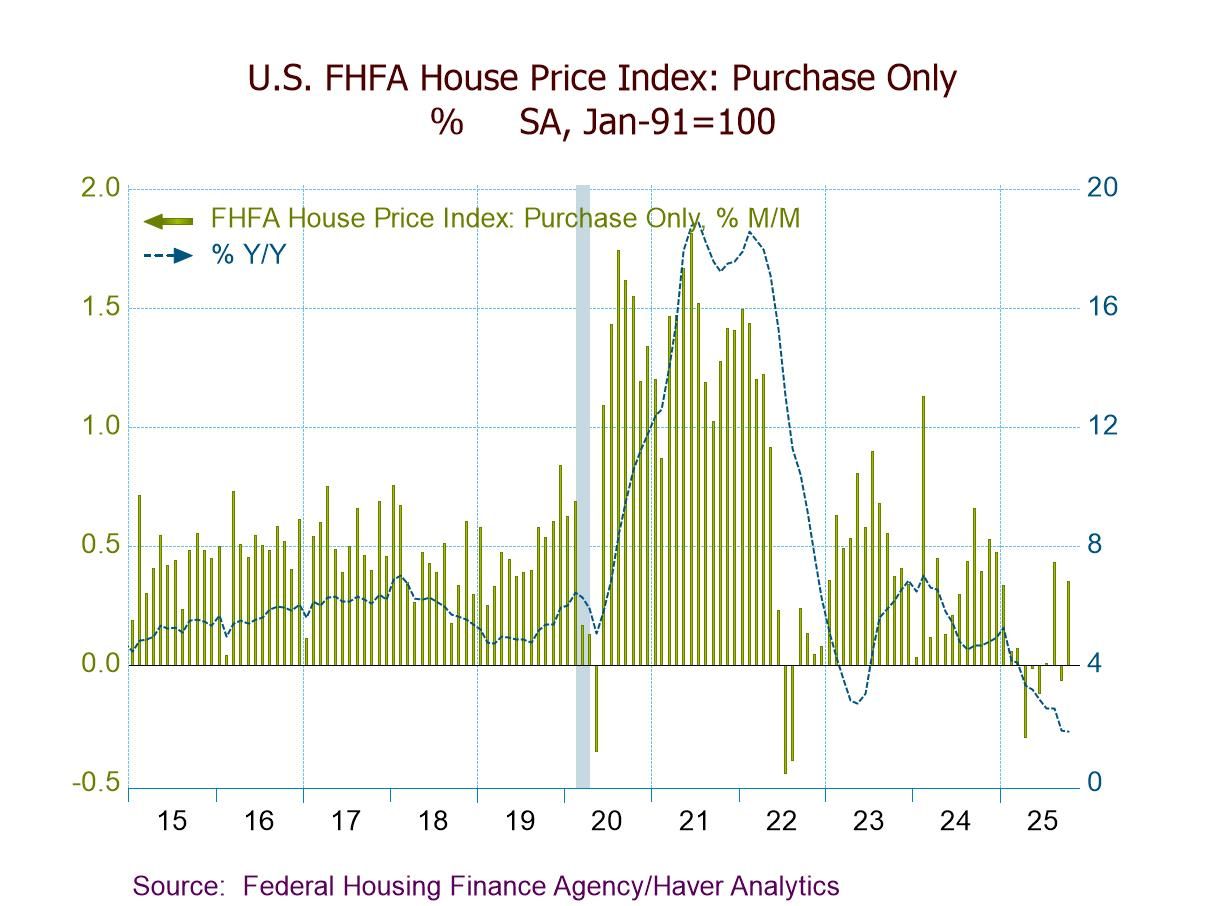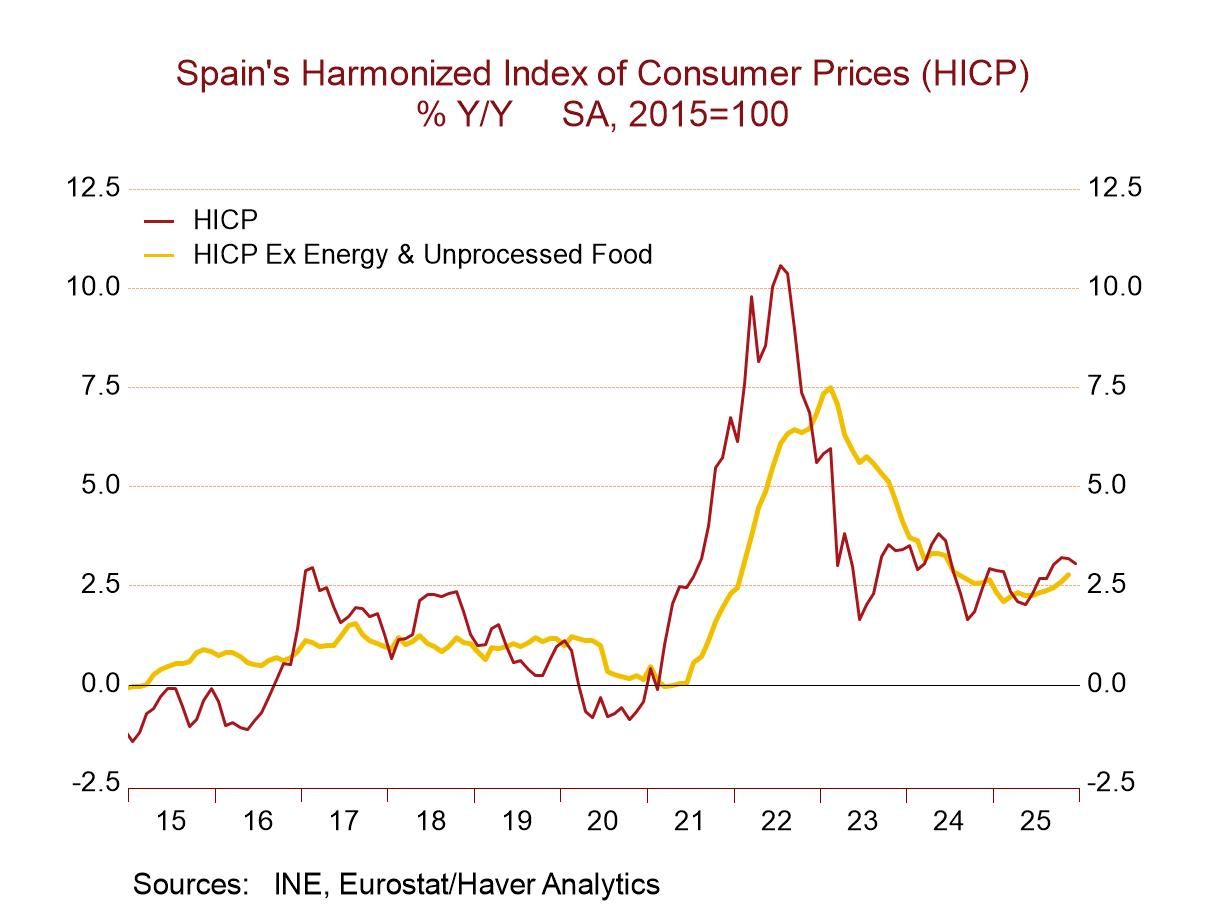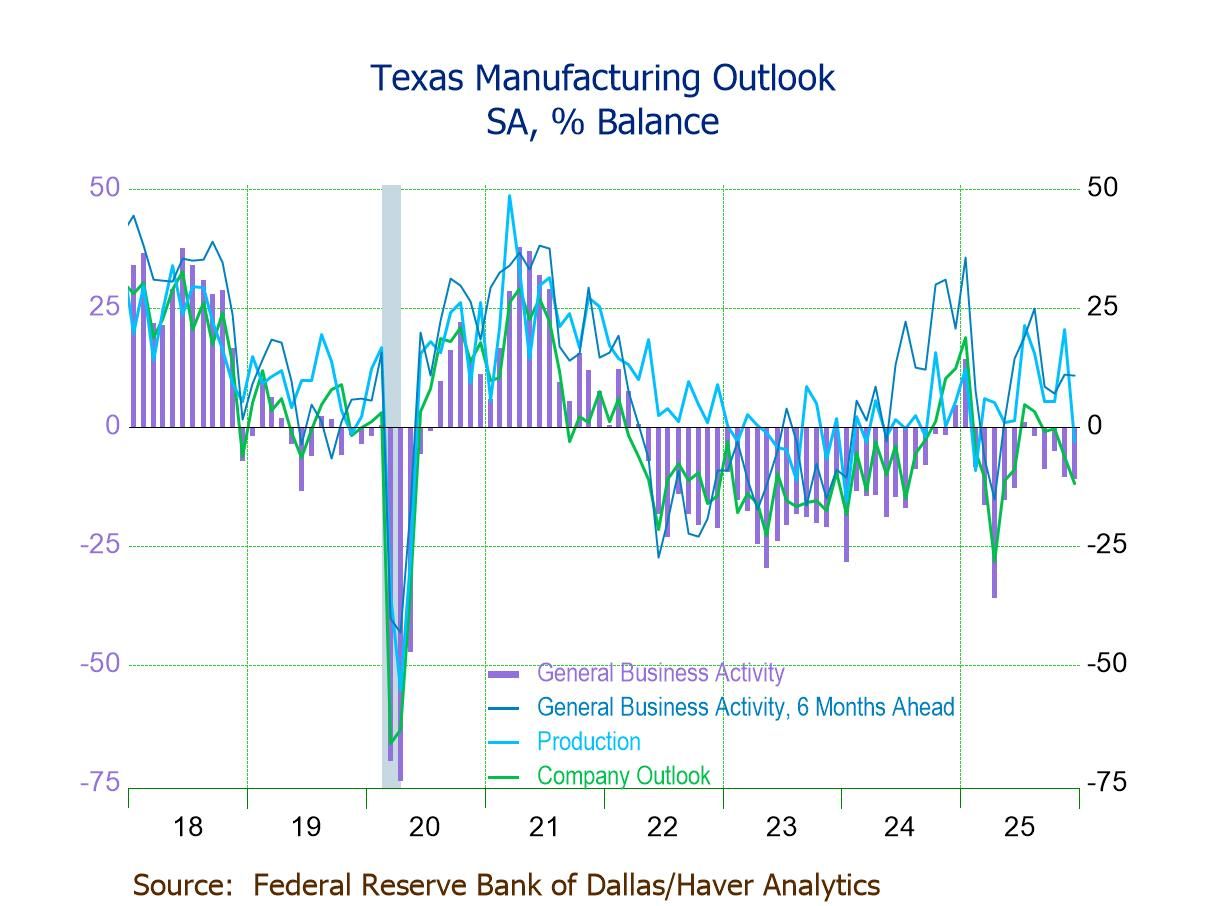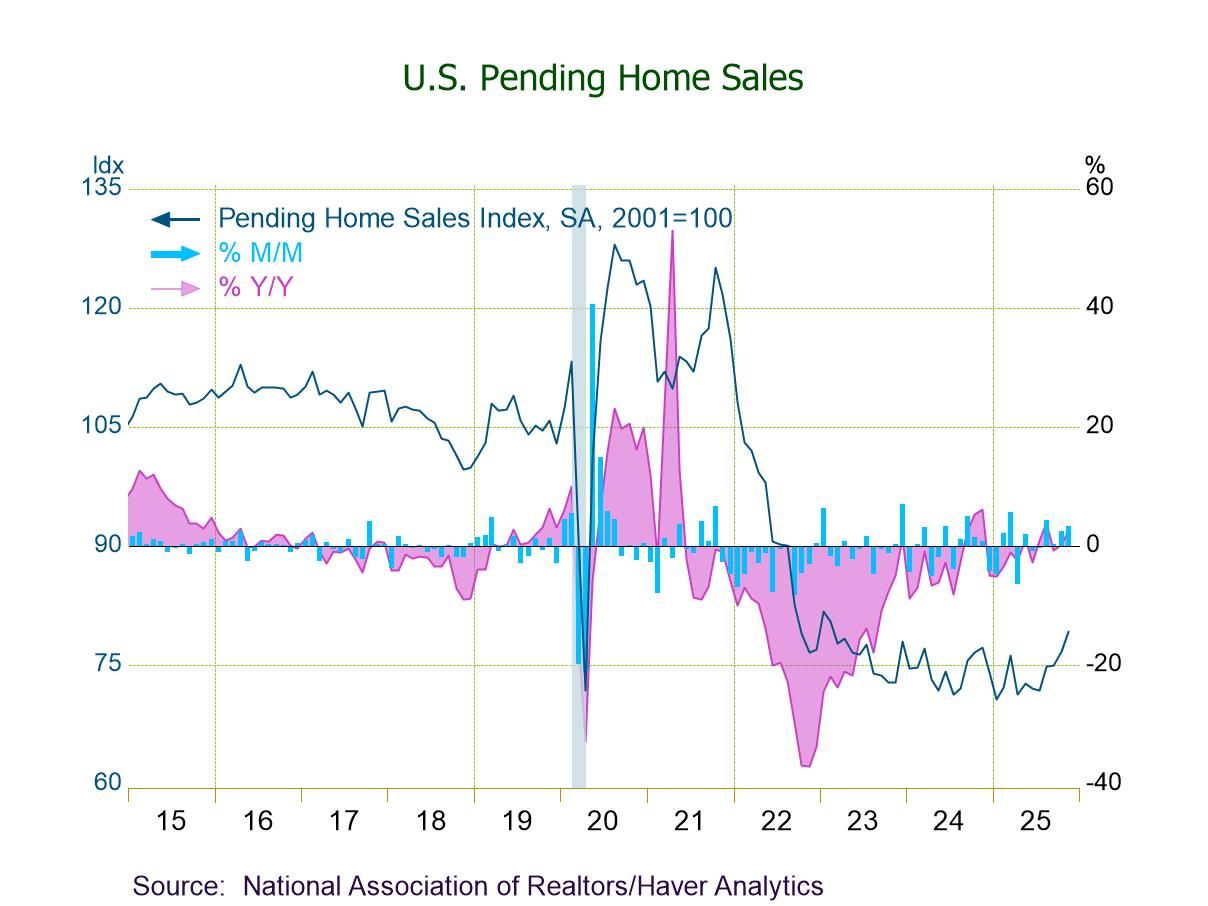 Global| Jan 30 2012
Global| Jan 30 2012EMU Indices Show Some Slowing in Unravel
Summary
The EU commission indices provide some perspective on Europe’s unraveling and embattled economy. For now the relentless erosion has abated but pressure remains and adverse dynamics are still in force. The overall EU index rose this [...]
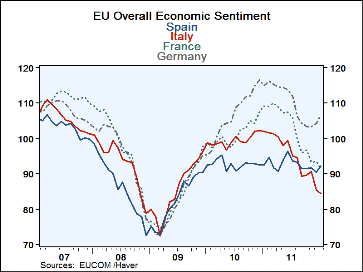 The EU commission indices provide some perspective on Europe’s unraveling and embattled economy. For now the relentless
erosion has abated but pressure remains and adverse dynamics are still in force.
The EU commission indices provide some perspective on Europe’s unraveling and embattled economy. For now the relentless
erosion has abated but pressure remains and adverse dynamics are still in force.
The overall EU index rose this month for only the second time in 12 months. Its level leaves it weak in its queue of ordered vales as its ranking percentile stands in the eighteenth percentile (bottom one-fifth) of its historic queue. The EMU index is similarly weak in the 21st percentile of tis queue. Both are aided substantially by German’s presence, as Germany is the largest EMU member whose country weight adds the most to EMU and EU metrics- and Germany stand strong compared to the rest of the Zone
Germany is by far the best euro-performer The German country reading stands in the 76th percentile of its range, a top one-quarter reading. Other large EMU nations like France and Italy stand in the 21st percentile and 9th percentile, respectively, of their ordered queues. On balance there is Germany and then there is the rest of EMU.
In January the readings for France and Italy slipped; Italy has been sliding hard in the last few months when the rest of the Zone has been stabilizing. Greece also turned lower after several months of increases in its index. Greece’s fate one again hangs in the balance.
Among the five major index readings, four of them improved this month. The largest improvement came from the services sector whose move from -6 to -3 is the 15th largest improvement on record for the sector. The industrial sector, construction sector and consumer confidence reading each improved by a single point. Deteriorating on the month was retailing which fell from -11 to -14, an outsized drop for that sector. Retailing and consumer confidence are the two sectors with the lowest queue standings in the Zone at percentile metrics below their respective 15th percentiles.
All countries remain short of their pre downturn cycle peaks. Germany’s overall reading shows it is at 64% of is cycle peak while Spain is clinging to 48% of its cycle peak. France is only at 19% and Italy at nearly 13%. Zone members continue to languish at levels well below their respective peaks. But the downward momentum in the Zone has abated for now.
The Greek situation is under discussion at the current EU meetings. Germany this weekend tried a heavy-handed approach to force Greece to give up some if its budget sovereignty. Greece refused to have its arm twisted and was angered by the request. In Davos they took straw vote among the denizens of Davos; that enlightened group continues to look for the Euro’s survival, at least for now.
But with Germans treading over the line of national sovereignty to try and get the discipline it seeks to lend Greece more funds we can see that the euro’s days are numbered. Countries cannot survive in a unit like EMU without trust. The Greeks have violated that trust and we can see that the Germans, at least, have not decided to let bygones be bygones. This is a vexing problem that will continue to haunt Greece and Germany and the Zone. The Greeks aren’t the only ones with budget issues.
Zone dynamics are in a new phase Sarkozy and Merkel, once antagonists, are finding Merkel ‘backing’ Sarkozy’s re-election bid even though he is well behind in his polls.
Euro politics are still in a tizzy. Ireland may push for a vote on any modification of the treaty and some important modifications are being sought to close the fiscal loopholes. Ireland already has made the biggest contribution to euro stability of any EMU member by rolling and undertaking its banking system’s debts. Its memory is long, too.
| EU Sectors and Country level Overall Sentiment | |||||||||||
|---|---|---|---|---|---|---|---|---|---|---|---|
| EU | Jan 12 |
Dec 11 |
Nov 11 |
Oct 11 |
%ile | Rank | Max | Min | Range | Mean | By Q rank% |
| Overall Index | 92.8 | 91.6 | 92.6 | 93.6 | 52.4 | 207 | 117 | 67 | 50 | 100 | 18.2% |
| Industrial | -7 | -8 | -8 | -7 | 69.6 | 125 | 7 | -39 | 46 | -7 | 50.6% |
| Consumer Confid | -21 | -22 | -21 | -21 | 32.4 | 221 | 2 | -32 | 34 | -12 | 12.6% |
| Retail | -14 | -11 | -13 | -12 | 37.1 | 219 | 8 | -27 | 35 | -7 | 13.4% |
| Construction | -31 | -32 | -29 | -29 | 30.0 | 189 | 4 | -46 | 50 | -19 | 25.3% |
| Services | -3 | -6 | -5 | -3 | 43.9 | 137 | 34 | -32 | 66 | 9 | 25.5% |
| % M/M | Jan-12 | Based on Level | Level | ||||||||
| EMU | 0.6% | -0.7% | -1.0% | 93.4 | 49.8 | 199 | 118 | 69 | 49 | 100 | 21.3% |
| Germany | 2.2% | 1.0% | -0.2% | 106.6 | 76.4 | 60 | 117 | 73 | 45 | 99 | 76.3% |
| France | -2.2% | 0.2% | -3.6% | 91.4 | 39.3 | 199 | 117 | 75 | 43 | 100 | 21.3% |
| Italy | -1.3% | -5.8% | 1.2% | 84.3 | 24.7 | 230 | 121 | 72 | 48 | 100 | 9.1% |
| Spain | 2.0% | -1.4% | 0.2% | 92.2 | 46.1 | 202 | 116 | 72 | 43 | 100 | 20.2% |
| Greece | -1.1% | 2.3% | 1.4% | 74.9 | 6.9 | 247 | 119 | 72 | 48 | 100 | 2.4% |
| Portugal | 1.5% | 0.9% | -7.9% | 75.7 | 10.0 | 248 | 117 | 71 | 46 | 100 | 2.0% |
| Memo:UK | 5.6% | -0.7% | -0.7% | 93.6 | 56.6 | 206 | 116 | 64 | 52 | 100 | 18.6% |
| All since June 1990 | 253 - Count | Services: | 184 -Count | ||||||||
| Sentiment is an index, sector readings are net balance diffusion measures | |||||||||||
Robert Brusca
AuthorMore in Author Profile »Robert A. Brusca is Chief Economist of Fact and Opinion Economics, a consulting firm he founded in Manhattan. He has been an economist on Wall Street for over 25 years. He has visited central banking and large institutional clients in over 30 countries in his career as an economist. Mr. Brusca was a Divisional Research Chief at the Federal Reserve Bank of NY (Chief of the International Financial markets Division), a Fed Watcher at Irving Trust and Chief Economist at Nikko Securities International. He is widely quoted and appears in various media. Mr. Brusca holds an MA and Ph.D. in economics from Michigan State University and a BA in Economics from the University of Michigan. His research pursues his strong interests in non aligned policy economics as well as international economics. FAO Economics’ research targets investors to assist them in making better investment decisions in stocks, bonds and in a variety of international assets. The company does not manage money and has no conflicts in giving economic advice.



